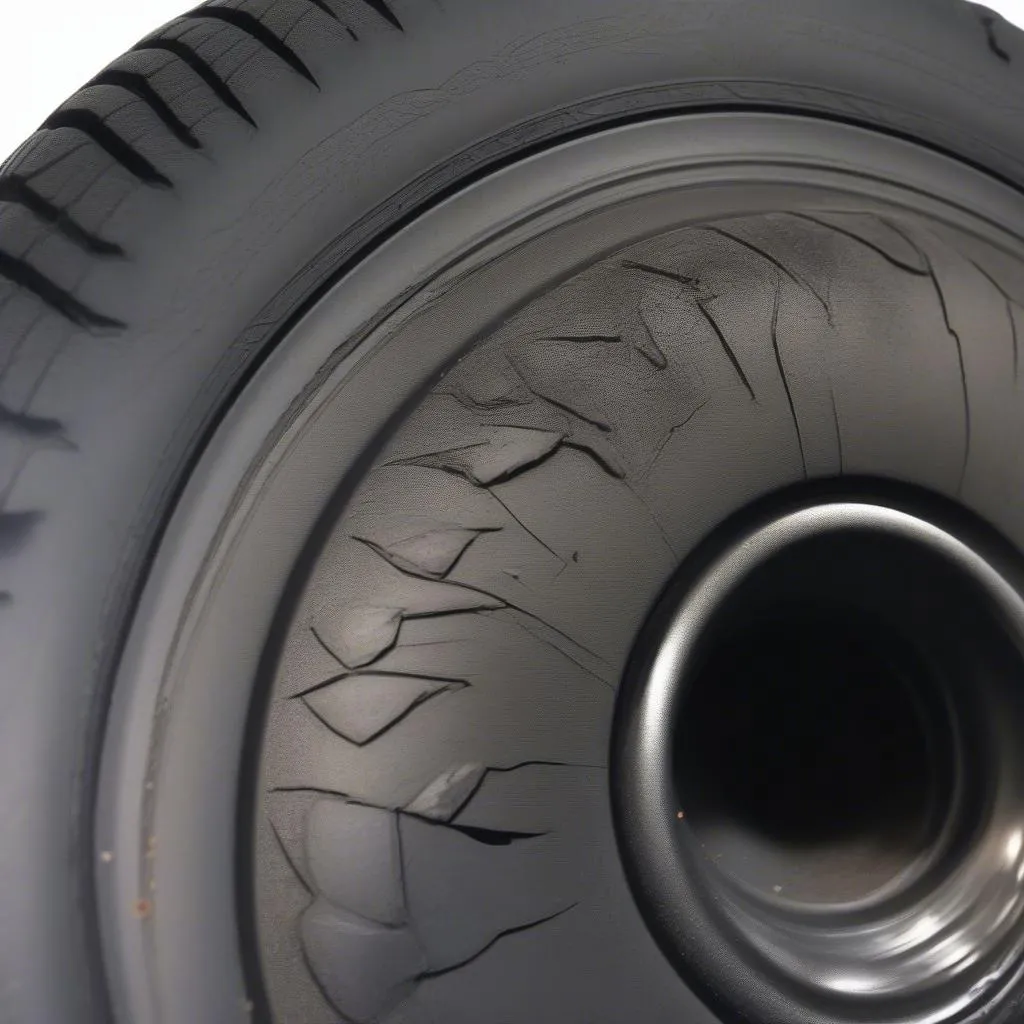Picture this: you’re cruising down the highway, the open road beckoning, and suddenly, your car starts to shake. Not just a little shimmy, but a full-on vibration that rattles your teeth. Sound familiar? This unnerving experience is something many car owners face, especially when exceeding 50 mph. But don’t worry, we’re here to help you understand why your car shakes above 50 mph and, more importantly, what you can do about it.
Decoding the Shakes: What Does It Mean?
Whether you’re a seasoned mechanic or a car novice, understanding the potential causes of car vibrations is crucial.
From a mechanic’s perspective, a shaking car often points to an imbalance somewhere in the vehicle’s system. It could be as simple as a tire issue or as complex as a problem with the drivetrain.
Technically speaking, the faster your car moves, the more pronounced even minor imbalances become. Imagine a washing machine with an uneven load – the faster it spins, the more it vibrates. Similarly, a slight misalignment in your car’s wheels can lead to noticeable shakes at higher speeds.
Ignoring these shakes isn’t just uncomfortable; it can be downright dangerous and lead to costly repairs down the line.
Common Culprits: Unmasking the Vibration Villains
So, why exactly does your car turn into a shaking mess past 50 mph? Here are some of the most common culprits:
1. Tire Troubles: Out of Balance and Out of Line
Your tires are the first point of contact with the road, and any issues with them can translate into vibrations.
- Unbalanced tires: Imagine juggling unevenly weighted balls – it wouldn’t be smooth, right? Similarly, unbalanced tires create vibrations that worsen with speed.
- Misaligned wheels: When your wheels aren’t pointing in the same direction, it causes your car to fight itself, leading to shakes, especially at higher speeds.
Think of a time you might have hit a particularly nasty pothole on Elm Street. That impact could have knocked your wheels out of alignment, causing your car to shake above 50 mph.
2. Worn-Out Parts: The Suspension Suspects
Your car’s suspension system is like its shock absorbers, keeping the ride smooth. Worn-out suspension components can lead to vibrations.
- Worn-out shocks or struts: These absorb bumps and keep your tires grounded. When they wear out, your car bounces more, causing shakes.
- Damaged ball joints or tie rod ends: These components connect your wheels to the steering system. Wear and tear can cause looseness and vibrations.
3. Drivetrain Dilemmas: When Things Go Awry
The drivetrain transmits power from your engine to the wheels. Issues here can cause serious vibrations.
- Worn-out CV joints: These joints allow for smooth power transfer to the wheels while turning. Worn-out CV joints often cause vibrations during acceleration.
- Damaged driveshaft: The driveshaft spins to deliver power to the wheels. A bent or damaged driveshaft can cause severe vibrations.
Imagine your car is a 2018 Ford Focus, a popular model known for its smooth ride. If you’re experiencing vibrations, it could be due to premature wear and tear on the CV joints, a known issue in some models.
 car-shaking-on-highway
car-shaking-on-highway
4. Brake System Blues: Not Always a Smooth Stop
Believe it or not, your brakes can also be the culprit behind those pesky vibrations.
- Warped brake rotors: Over time, brake rotors can become warped or uneven, leading to vibrations when braking, especially at higher speeds.
Imagine driving down Highway 101 and hitting the brakes suddenly. If you feel vibrations in the steering wheel, it could indicate warped rotors.
Tackling the Tremors: Your Guide to a Smoother Ride
Experiencing car shakes above 50 mph can be concerning, but addressing the issue is crucial for a safe and enjoyable driving experience. Here’s what you can do:
1. Start with the Basics: Check Your Tires
Since tire issues are the most common culprit, begin by inspecting your tires for:
- Uneven wear: Check for signs of uneven tread wear, which could indicate alignment problems.
- Bulges or bubbles: These indicate tire damage and require immediate replacement.
- Proper inflation: Use a tire pressure gauge to ensure your tires are inflated to the recommended PSI.
2. Consult the Professionals: Schedule an Inspection
If your DIY inspection doesn’t reveal the culprit, it’s best to seek professional help. A mechanic can:
- Inspect your suspension system: They’ll check for worn-out shocks, struts, ball joints, and other components.
- Examine your drivetrain: This includes inspecting the CV joints, driveshaft, and other related parts.
- Inspect your brake system: They’ll check for warped rotors or other brake-related issues.
Remember, a proper diagnosis is key to fixing the problem effectively.
3. Don’t Delay Repairs: Address Issues Promptly
Ignoring car vibrations can lead to:
- Further damage: What starts as a minor tire issue can escalate into a major suspension or drivetrain problem.
- Safety hazards: Vibrations can affect your car’s handling and increase the risk of accidents.
- Costly repairs: Ignoring small problems can lead to more expensive repairs down the line.
FAQs: Your Burning Questions Answered
Here are some frequently asked questions about car shakes above 50 mph:
Q: Can a wheel alignment fix vibrations at all speeds?
A: While wheel alignment can solve vibrations caused by misaligned wheels, it won’t fix issues stemming from unbalanced tires, worn-out suspension components, or drivetrain problems.
Q: How often should I get my tires balanced and rotated?
A: It’s generally recommended to get your tires balanced and rotated every 5,000 to 7,500 miles, or as recommended by your car manufacturer.
Q: Can driving on a flat tire cause my car to shake?
A: Absolutely. Driving on a flat tire can cause severe vibrations and damage your wheel, tire, and potentially other suspension components.
 tire-damage-flat-tire
tire-damage-flat-tire
Need More Help? We’re Just a Message Away!
Still unsure about those pesky car shakes above 50 mph? Don’t fret! Our team of auto experts is here to help you diagnose and resolve the issue. Contact us via WhatsApp at +84767531508 for expert assistance with your diagnostic tool needs. We offer 24/7 support to get you back on the road smoothly and safely.
Drive Smooth, Drive Safe
Remember, a shaking car is a warning sign that shouldn’t be ignored. By addressing the issue promptly, you can ensure a smoother, safer, and more enjoyable driving experience. For more insights on car maintenance and troubleshooting, explore our other informative articles:
We encourage you to share your experiences and questions in the comments below. Safe travels!